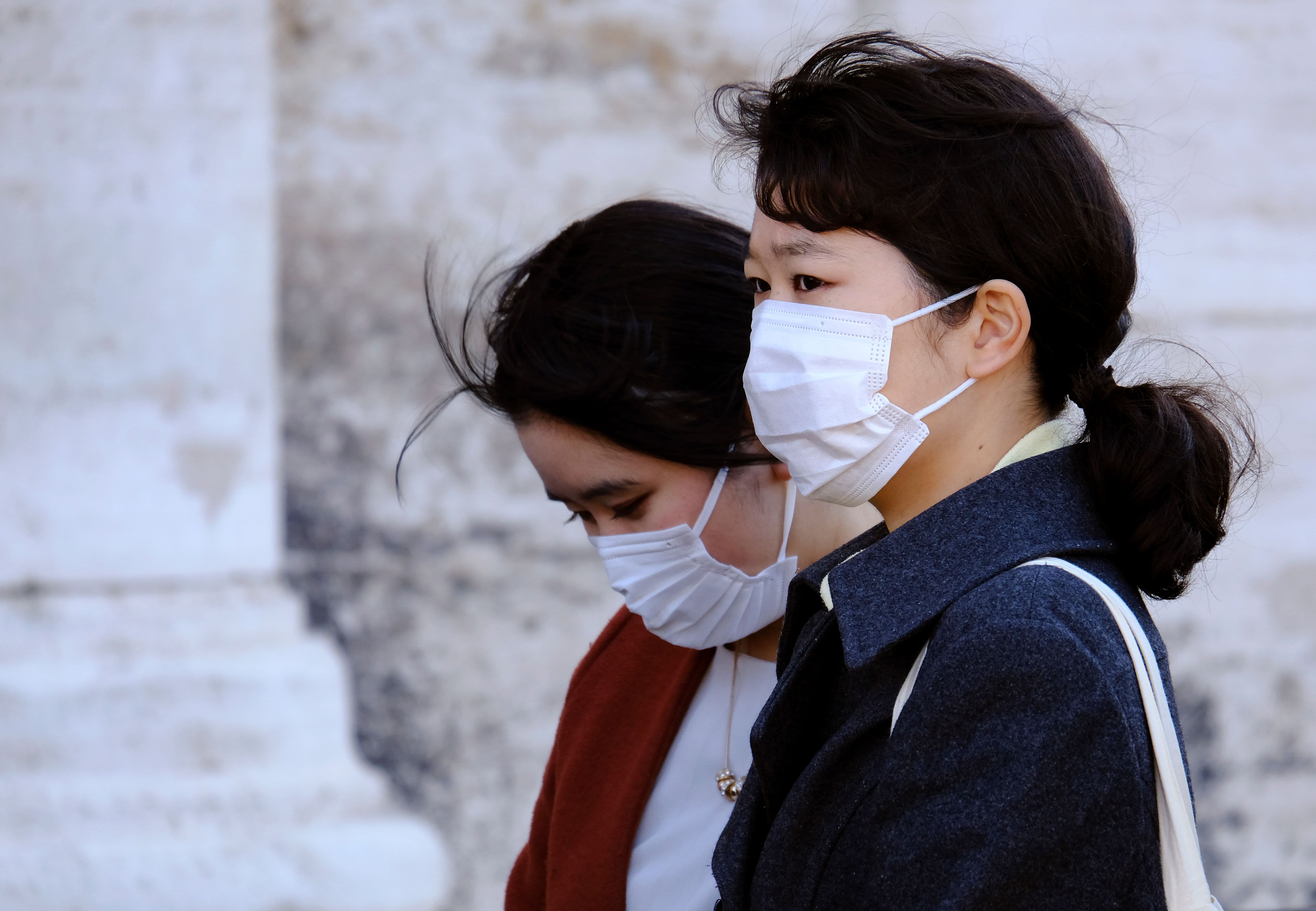Summer Mutz’s dream of visiting Europe was finally arriving this weekend — a trip to Rome, Vienna and Paris with a friend. But with the novel coronavirus sweeping the globe and the number of cases in Italy surging, what once seemed like a wonderful milestone was now a source of fear and anxiety.
“I literally could not stop thinking about it all night,” said Mutz, 23, of New Jersey.
Mutz said a recent case of bronchitis and the fact that she has an autoimmune disease had left her worried about her health and wondering whether the trip was worth the risk. She was also concerned about being in a situation where she’d potentially be quarantined and stuck in a country she didn’t know.
“It’s all I can think or talk about right now,” she said.
More from NBC News:
Where did the new coronavirus come from? Past outbreaks provide hints
Coronavirus crash wipes $5 trillion off world stocks
US retailers could see some empty shelves by mid-April
The coronavirus outbreak has spread from China to at least 40 countries, affecting markets and disrupting travel with more than 81,000 cases worldwide and more than 2,700 deaths. A recent increase in cases in Italy, Iran and South Korea has heightened concerns about the ability to contain the virus’ spread.
With spring and summer coming up, some Americans are concerned about or reconsidering their travel plans as the virus continues to spread.
Tourists wearing a protective respiratory mask tour outside the Colosseo monument (Colisee, Coliseum) in downtown Rome on February 28, 2020 amid fear of Covid-19 epidemic.
Andreas Solaro | CFP | Getty Images
“We’ve seen a record number of calls from customers who are concerned about their future trips and wondering about their options,” said Kasara Barto, public relations manager at Squaremouth, a travel insurance comparison service.
Barto said fear of traveling or viral outbreaks weren’t covered as reasons for cancellation under standard travel insurance plans.
For travelers planning trips or for those who recently booked, a “cancel for any reason” policy upgrade could be a good option, Barto said. The policies allow travelers to cancel their plans for up to three days before their trips and get refunds of up to 75 percent, but the insurance must be bought within two to three weeks of making a first booking, Barto said.
They also come at a price, costing about 40 percent more than standard trip cancellation policies, she said.
Ronni Kenoian, manager of marketing at InsureMyTrip, said the company had seen a recent 60 percent increase in customers adding cancel-for-any-reason coverage. It had also seen a 40 percent increase in calls, she said.
Kenoian said people who have already booked trips but don’t have insurance should call their travel agents or suppliers, especially if they were scheduled to go to an area affected by the virus.
“A lot of travel suppliers are reimbursing or shifting schedules without any fees,” she said.
Beyond international travel, U.S. public health officials said this week that Americans should prepare for the coronavirus to spread in communities across the country.
“It’s not so much a question of if this will happen anymore but rather more a question of exactly when this will happen and how many people in this country will have severe illness,” Dr. Nancy Messonnier, head of the National Center for Immunization and Respiratory Diseases at the Centers for Disease Control and Prevention, said at a media briefing Tuesday.
If the U.S. were hit by a widespread outbreak similar to the crisis in China, major domestic airlines would be forced to make “drastic cuts” to all nonessential air travel, potentially bringing the entire industry to a standstill, said Robert Mann, an airline industry analyst.
“We wouldn’t want people congregating in an aluminum tube, especially since air travel is considered a very effective means for disease propagation,” he said.
Mann, a former executive at American Airlines and other leading carriers, said a U.S. outbreak could rattle consumer confidence in virtually all forms of travel, potentially rivaling the aftermath of the terrorist attacks of Sept. 11, 2001, in terms of anxiety and economic effect.
“I think it might be even worse than the drop in demand after 9/11,” Mann said. “The drop was for a specific, tragic reason, but remember that it did not necessarily curtail rail travel or travel by road. But with this virus, you could see most forms of travel restricted. It would have a major impact on the country.”
Erika Richter, the senior director of communications for the American Society of Travel Advisors, an advocacy organization, advised all travelers for now to “keep calm.”
“If history is our guide, the travel market will correct itself. Americans are intrepid,” she said.
She said the organization’s advisers were concentrating more on working with travelers to find new destinations, reroute trips and find new times of the year to go away.
Earlier Thursday, Mutz said she was still undecided whether to get on that plane, although she did have cancel-for-any-reason insurance coverage.
“It’s hard, and I have a feeling I’m going to end up going because I’ve been dreaming of getting to Europe for years, and now I’m torn,” she said. “Coronavirus is a big, scary thing. Right now, it’s fear versus dreams.”
But later in the afternoon, she decided to move forward with canceling.
While she was “very sad” about the decision, she said she was also relieved. She looked forward to planning another Europe trip when things were less uncertain, she said.
